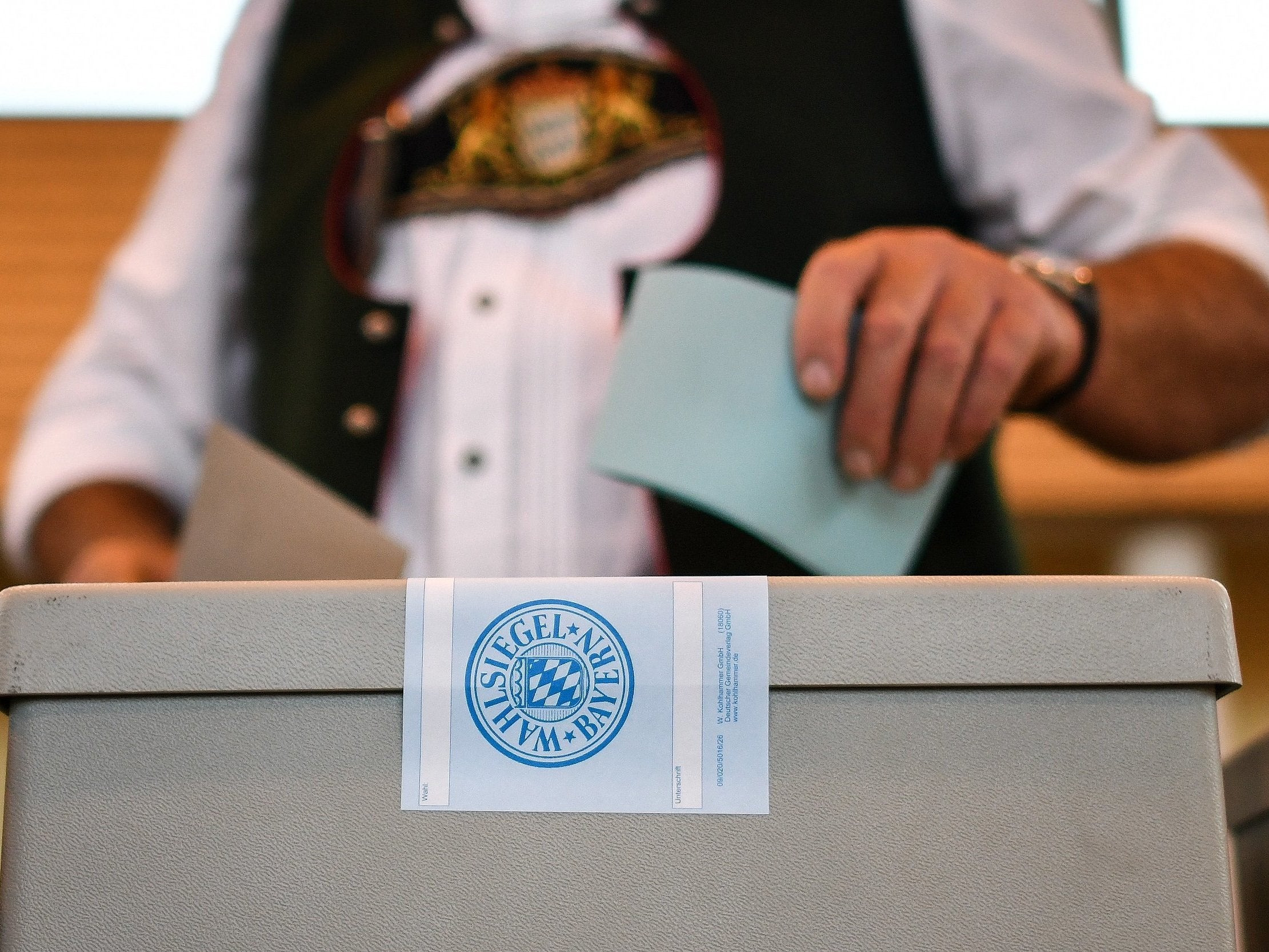Bavaria election: Merkel allies brace for loss of majority in German state voting
Christian Social Union appears to have lost support to both left and right

Your support helps us to tell the story
From reproductive rights to climate change to Big Tech, The Independent is on the ground when the story is developing. Whether it's investigating the financials of Elon Musk's pro-Trump PAC or producing our latest documentary, 'The A Word', which shines a light on the American women fighting for reproductive rights, we know how important it is to parse out the facts from the messaging.
At such a critical moment in US history, we need reporters on the ground. Your donation allows us to keep sending journalists to speak to both sides of the story.
The Independent is trusted by Americans across the entire political spectrum. And unlike many other quality news outlets, we choose not to lock Americans out of our reporting and analysis with paywalls. We believe quality journalism should be available to everyone, paid for by those who can afford it.
Your support makes all the difference.Angela Merkel’s allies in Bavaria are likely to suffer their worst state election result in more than 60 years, with unpredictable consequences for the German chancellor’s coalition government.
The Christian Social Union (CSU) is predicted to win around 34 per cent of the vote, losing the absolute majority it has held for all but five of the last 56 years.
The CSU appears to have lost support to both the left and the right, with the Greens picking up their liberal-minded voters and the far-right Alternative for Germany (AfD) party set to win seats.
While the CSU is unlikely to lose power altogether, just needing coalition partners to govern would serve as a humiliating setback.
It could force the CSU state premier, Markus Soeder, who has ruled out a coalition with the AfD, into an awkward alliance with the Greens to form a coalition government.
The far-right AfD, which entered Germany’s national parliament only last year, is appealing to voters who want an uncompromising anti-migration, law-and-order stance.
Polls put support for the far-right party at 10 per cent, while the Greens looked set to win up to 19 per cent.
In Berlin, the CSU is part of Germany’s grand coalition along with its sister party, Ms Merkel’s Christian Democrats (CD) and the centre-left Social Democrats (SDP).
The alliance has been hit by internal squabbling since it took office in March and the parties are sagging in national polls, with the Social Democrats also appearing to be set for significant losses on Sunday.
Ms Merkel’s fourth and probably final government has already come close to collapsing twice, in arguments over immigration and a scandal concerning Germany’s former domestic spymaster.
The parties also differ in how they want to phase out polluting diesel cars and whether to grant tax cuts for the rich.
The Bavarian election followed a mass protest in Berlin on Saturday, in which more than 200,000 people demonstrated against racism, xenophobia and the rise of the far right.
Join our commenting forum
Join thought-provoking conversations, follow other Independent readers and see their replies
Comments